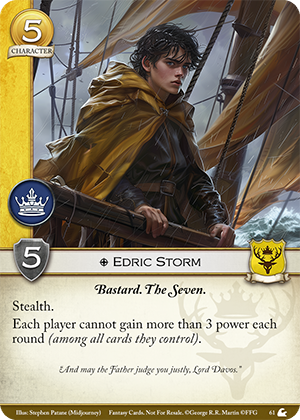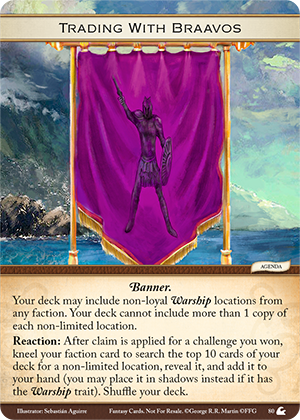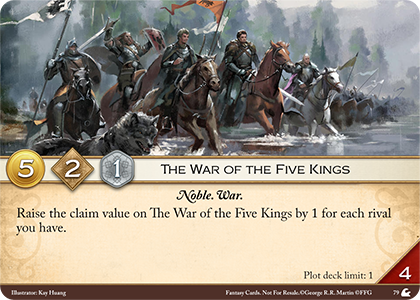
What if there is only 1 or 2 cards in an opponent's discard pile ?
.....................................

What if there is only 1 or 2 cards in an opponent's discard pile ?
.....................................

In the last tournament update, The Red Keep has been refined to better reflect its strategic importance without granting unnecessary economic advantages. The ability to cancel an opponent’s triggered effects remains a powerful defensive tool, and retaining the 1-gold payment However, we removed the passive income bonus to avoid over-efficiency and to keep the card focused on its core purpose: controlling the flow of the game through timely intervention.

Potentially one of the worst cards among the new sets created by the community, nearly useless or ineffective in every situation. Edric's ability is detrimental to most Baratheon builds, he is a monocon, so Martell has a field day with him, and he is cost 5, which means no cost reduction with Great Hall, thus mostly being a waste of resources. His The Seven trait is supposed to be what gets him added to a deck so he can pair up with Bonnifer, but compared to the other Baratheon The Seven cards, Edric falls short. This card reminds me of Core Stannis, a theoretically useful card that rarely works the way you want it to. If this card had the House Florent trait, was cost 4, or had another icon, then I think he would've been an interesting addition to Baratheon deckbuilding. Oh well

Rules FAQ
Your deck cannot include more than 1 copy of any non-limited location by title. In other words, if you play Silence (KotI), you cannot also play Silence (JS).
Reactions to claim being applied share the reaction window with reactions to the effects of the claim. Normally, that would be a character being killed for claim, a card being discarded for claim, or power being moved for claim.
If the claim value is 0, or if a claim replacement ability is used, claim is still considered to have been applied.
If you put a location without the shadow keyword into shadows, it will not gain the shadow keyword while in shadows. You will need some other way to bring it out (for instance, Starfall Spy).

Rules FAQ